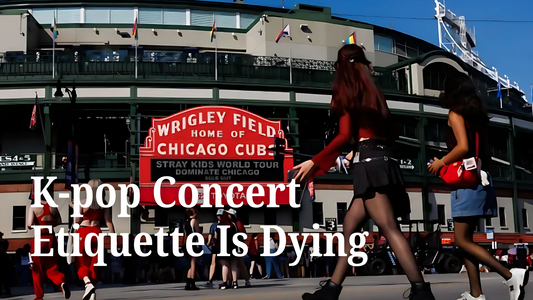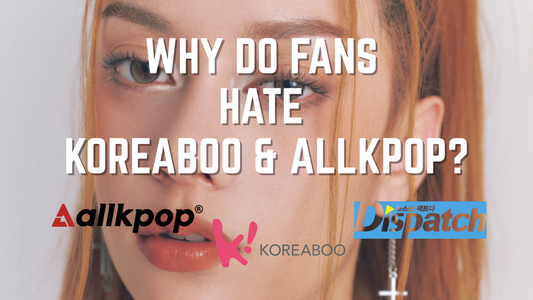written by Daniela Cortes
The relationship between K-pop and mental health is one of mutual support. Not only do idols face immense pressure, but K-pop has also become a source of healing and comfort for millions of fans worldwide. In my own journey, K-pop, and specifically Stray Kids, played a crucial role in helping me through a difficult time in my life.
My K-pop Journey: Finding Comfort in Stray Kids
I got into K-pop at the end of 2019, right as the world was on the verge of the COVID-19 pandemic. As lockdowns began in early 2020, my mental health took a dive. I was in college at the time, dealing with personal struggles and issues with my dorm situation. I felt isolated, unsupported, and even considered dropping out.

The eight members of straykids
That’s when I discovered Stray Kids, the first K-pop group I became interested in. Something about their music and personalities gave me an escape. Despite the challenges I was facing, listening to their songs and fan-girling over them brought me so much happiness. They were a bright spot in a dark time, helping me through moments of anxiety and stress.
In 2022, I had the opportunity to attend their Manic Tour, my first-ever K-pop concert. I can’t describe the joy I felt seeing them perform live. It was as if all my worries melted away. Every time I think of that concert or listen to their music, I feel the same sense of peace and happiness that helped me through college.

Me at my first K-pop concert - Stray Kids: Manic Tour 2022
K-pop as a Lifeline for Fans
This isn’t just my story—countless fans have shared similar experiences of K-pop being a source of comfort. The global K-pop fandom has become a space where people lift each other up, share their struggles, and find solace in the music and the community. The music videos, lyrics, and even the behind-the-scenes content of idols create a sense of connection that transcends language barriers.

Rosé of Blackpink
For many fans, K-pop provides an emotional outlet, whether through music that uplifts them or through the shared experience of being part of a fandom. Groups like BTS, Stray Kids, and TWICE have songs that directly address self-love, mental health, and perseverance, making their music a lifeline for those who might be struggling.
The Pressure on Idols
K-pop idols also suffer from their own mental health issues. They are often seen as perfect performers, but behind the scenes, they face immense pressure to maintain a flawless image. From rigorous training schedules to public scrutiny, the demands of the industry can take a toll on idols’ mental health. Several high-profile cases of idols opening up about their struggles with depression and anxiety have raised awareness about the industry’s intense environment.

SHINee’s Jonghyun
One major challenge is the idol “trainee” system, where hopefuls dedicate years of their lives to rigorous training in hopes of debuting. Once they do debut, the pressure to maintain high standards of beauty, behavior, and success is unrelenting. The physical and emotional toll can lead to burnout, exhaustion, and, in some tragic cases, idols succumbing to mental health issues. The tragic loss of idols like SHINee’s Jonghyun and f(x)’s Sulli shed light on the need for mental health care in the industry.
A Balanced Perspective
K-pop’s influence on mental health isn’t entirely negative or positive—it’s complex. While the industry itself has room for improvement in supporting idols’ mental health, it has also provided solace for fans who find strength and joy in the music and community.
Looking ahead, a greater emphasis on mental health care within the industry, both for idols and fans, could lead to healthier outcomes. Companies should prioritize mental health resources for their artists, and fans should continue supporting their favorite idols in ways that promote well-being.
Healing Together

The seven members of BTS at the press conference and agreement ceremony for “Love Myself,” UNICEF’
What makes K-pop truly special is the reciprocal relationship between idols and fans. While idols like Stray Kids and BTS are open about their struggles, encouraging fans to take care of their mental health, fans, in turn, show immense support and empathy. In the online spaces that fans create, they share their own stories, providing a platform where people can find solidarity and reassurance. The sense of community among fans, known as “fandoms,” often provides emotional support and a feeling of belonging. Many fans turn to K-pop not only for entertainment but as a coping mechanism during tough times.
Additionally, some idols speak openly about their mental health journeys, encouraging fans to prioritize self-care and seek help when needed. BTS, for instance, has been vocal about mental health in their music and public appearances. Their “Love Yourself” campaign with UNICEF promotes the importance of self-love and mental health awareness, resonating with fans globally.









